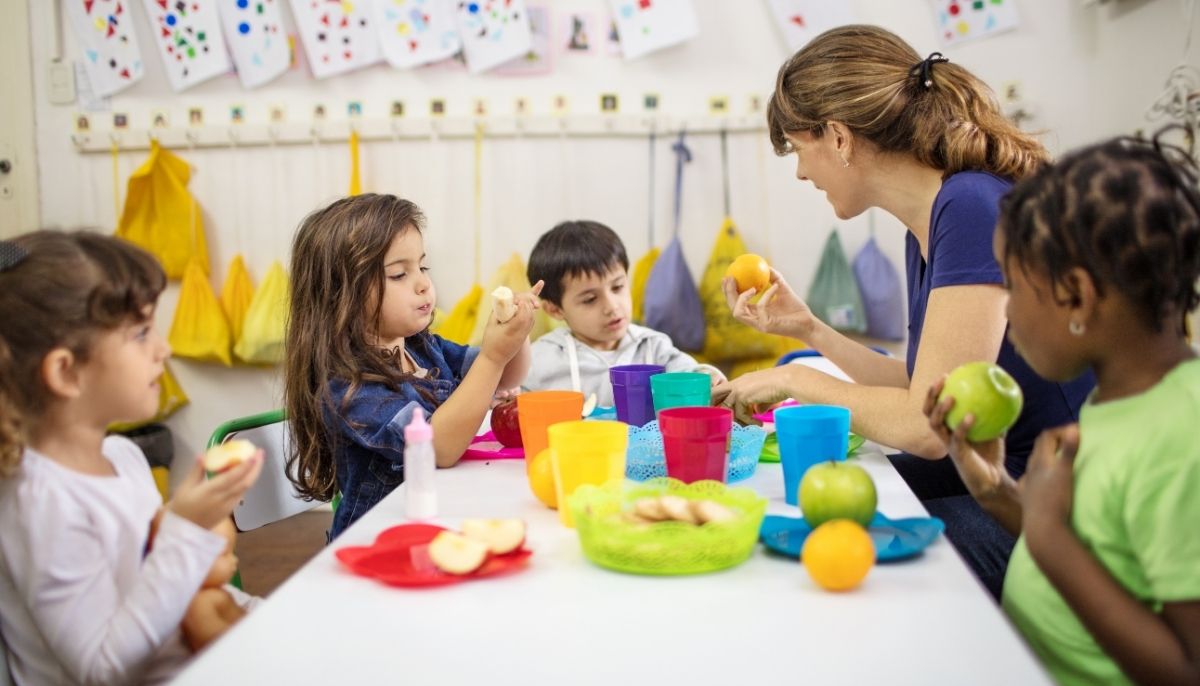By: Valerie Fung-A-Ling

Schools are prioritizing social and emotional learning (SEL) as an essential part of education to improve school climate, academic achievement and student well-being. Various approaches to SEL integration provide students with multiple opportunities to learn about, practice and continuously develop social-emotional skills. Nutrition education, which teaches children to make connections with food, health, environment and community, is a practical and engaging way to support students in developing their SEL skills.
Integrating SEL Through Nutrition Education
Topics related to food naturally bring students together, encouraging discussion and skills practice while also relating food and nutrition to their own health, culture and personal experiences. Nutrition lessons and conversations offer relatable topics for daily practice of SEL competencies using real-life examples that personalize nutrition to make it relevant and applicable. Following are a few examples:
Food is a universal topic and therefore invites the practice of behaviors that show respect, appreciation and inclusivity with regard to cultures, backgrounds, languages and experiences of student communities at school and at home. Teach nutrition education to help children practice social-emotional skills. Dairy Council of California supports educators and families by providing free resources, including online learning curriculum. This list of Family Connections for each grade level provide concrete suggestions for promoting SEL at school and at home.

Valerie Fung-A-Ling
Valerie Fung-A-Ling
Valerie, Project Manager of Nutrition Education, has more than 30 years of nutrition education expertise.
Sharing positive cooking + eating experiences with children will inspire healthy eating habits + contribute to good health in childhood + adulthood.

Having a positive relationship with food and eating a wide variety of foods as an adult is the outcome of this positive eating journey.

Subscribe to our blog to stay up to date on the latest news, products, and more.